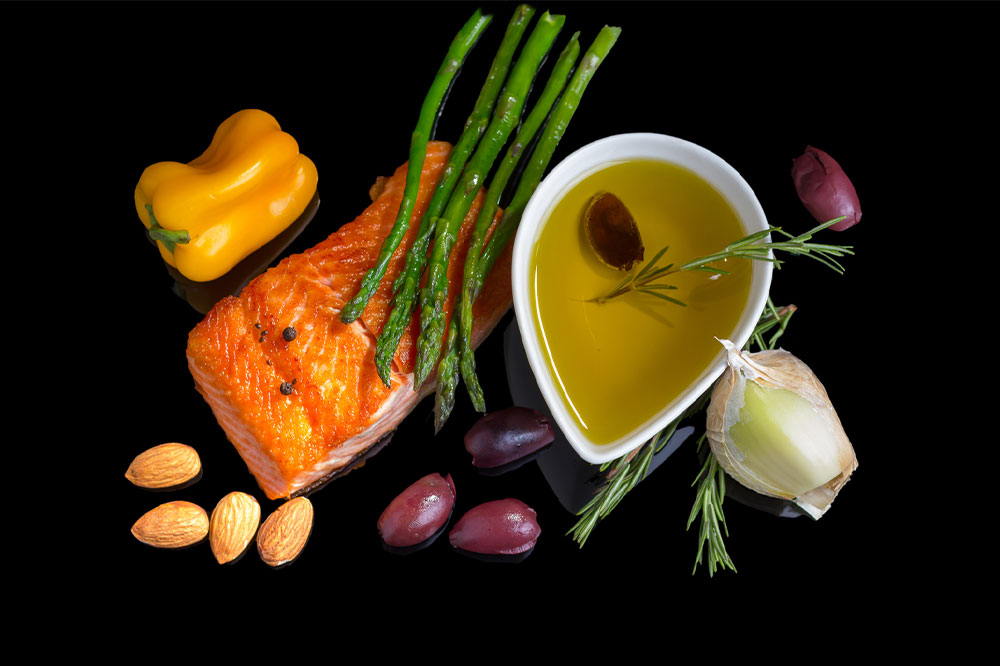Effective Dietary Strategies for Managing Rheumatoid Arthritis Symptoms
Discover effective dietary options to alleviate rheumatoid arthritis symptoms. This comprehensive guide highlights foods like garlic, omega-3 fatty fish, cruciferous vegetables, ginger, nuts, and berries that can reduce inflammation and support joint health. Incorporate these nutritious foods into your daily diet to potentially ease joint pain, stiffness, and swelling. Combining proper medication with a targeted diet offers a holistic approach to managing rheumatoid arthritis, improving overall quality of life. Consult your healthcare provider for personalized advice on integrating these dietary strategies into your treatment plan.

Effective Dietary Strategies for Managing Rheumatoid Arthritis Symptoms
Rheumatoid arthritis (RA) is a chronic autoimmune disorder characterized by persistent joint pain, stiffness, swelling, and inflammation. It affects millions worldwide and can significantly diminish quality of life. This complex condition arises when the immune system erroneously targets the synovial membranes lining the joints, leading to tissue damage and joint destruction over time. While medical treatments such as immunosuppressants and anti-inflammatory drugs are essential, incorporating specific foods into your diet may offer additional relief and support joint health. Recent research highlights the importance of nutritional choices in managing inflammation and reducing RA symptoms.
Garlic: Nature’s Anti-Inflammatory Powerhouse
Garlic has long been celebrated for its medicinal properties. Rich in compounds like allicin, garlic exhibits potent anti-inflammatory and immune-modulating effects. Scientific studies involving large cohorts, such as one with nearly 2,000 participants, have shown that regular garlic consumption significantly reduces the risk of developing arthritis, with a particularly notable impact among women. Its bioactive compounds help inhibit inflammatory pathways, which can alleviate joint pain and swelling associated with RA. Including raw or cooked garlic in daily meals can be a simple yet effective strategy to bolster joint health.
Omega-3 Rich Fish: Promoting Joint Comfort
Fatty fish such as salmon, mackerel, sardines, and trout are abundant sources of omega-3 fatty acids, specifically EPA and DHA. These essential fats are renowned for their powerful anti-inflammatory properties, which can help reduce joint inflammation, stiffness, and pain in individuals with RA. Studies have demonstrated that consuming omega-3-rich fish at least four times a week can decrease severity of symptoms, enhance joint function, and lower the risk of osteoporosis. Healthcare professionals often recommend integrating fatty fish into weekly diets or taking fish oil supplements to support inflammation management and improve mobility in RA patients.
Cruciferous Vegetables: Anti-Inflammatory Shield
Vegetables like broccoli, cauliflower, Brussels sprouts, and kale belong to the cruciferous family and are rich in compounds such as sulforaphane that combat inflammation. Research conducted in Ohio observed that women consuming various cruciferous vegetables experienced a notable decrease in joint swelling and inflammatory markers. Sulforaphane acts by blocking inflammatory enzymes and pathways, thereby easing arthritis discomfort. Regular intake of broccoli, in particular, can provide long-term benefits for individuals with RA. Moreover, such vegetables contribute vital nutrients and antioxidants that bolster overall immune health. Incorporating a mix of these vegetables into meals supports not only joint health but overall wellness as well.
Ginger: A Natural Anti-Inflammatory
Ginger, a popular culinary root, has been used traditionally to treat various ailments for centuries. Its bioactive compounds, including gingerol, exhibit powerful anti-inflammatory and analgesic properties. In clinical trials involving over 260 participants, ginger supplementation resulted in significant symptom improvement, reducing joint pain and inflammation. Its effectiveness is attributed to the inhibition of inflammatory cytokines and cells. Ginger can be consumed fresh, powdered, as an extract, or dried pieces, and has shown promising results in reducing RA symptoms in both humans and animals such as rats and dogs. Adding ginger to teas, smoothies, or meals can serve as a natural adjunct in managing joint discomfort.
Walnuts and Nuts: Nutritional Support for Joints
Nuts like walnuts are nutrient-dense, providing a rich source of plant-based omega-3 fatty acids, polyphenols, and antioxidants. These compounds help modulate immune responses and lower systemic inflammation, thereby alleviating RA symptoms. Combining walnuts with olive oil enhances their anti-inflammatory potential, creating a powerful dietary synergy. Regular consumption of nuts may contribute to reduced joint pain and improved joint function, making them a great snack option or addition to salads and cereals.
Berries: Rich in Antioxidants
Berries, including cranberries, strawberries, cherries, blackberries, and blueberries, are packed with antioxidants, vitamins, and minerals that combat oxidative stress and inflammation. Multiple studies have shown that women who consume berries regularly experience less joint swelling and reduced levels of inflammatory markers. The berries’ high content of anthocyanins and vitamin C are linked to decreased immune cell activity and lower inflammation. Incorporating berries into your diet not only offers a delicious way to support joint health but also provides essential nutrients that help strengthen the immune system and combat chronic inflammation that characterizes RA.
While medications prescribed by healthcare providers remain crucial in managing rheumatoid arthritis, dietary modifications can play a significant complementary role. Focusing on anti-inflammatory, nutrient-rich foods like garlic, fatty fish, cruciferous vegetables, ginger, nuts, and berries can help reduce symptoms, support joint health, and improve quality of life. Adopting a balanced diet tailored to combat inflammation provides a natural, holistic approach to managing this autoimmune condition effectively over time. Always consult with your healthcare professional before making significant changes to your diet or treatment plan to ensure safety and appropriateness for your specific health needs.





